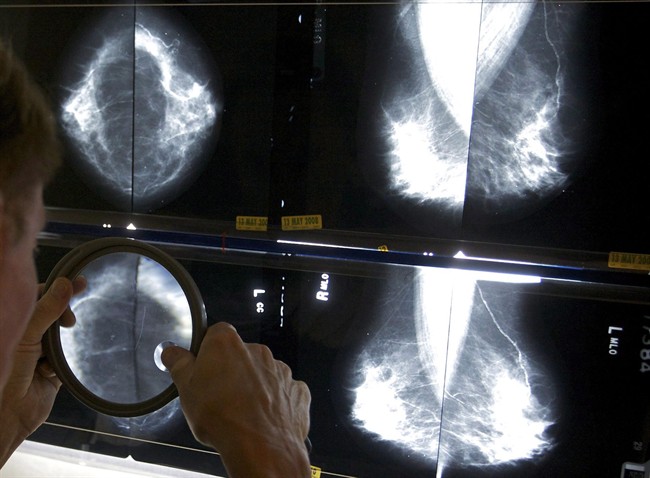TORONTO – A study lead by Toronto researchers has found little difference in death rates among women with the most common type of breast cancer, ductal carcinoma in situ (DCIS), who underwent a mastectomy versus less invasive treatments: either a lumpectomy, or lumpectomy with radiation.

The study of 100-thousand American women was led by Dr. Steven Narod, with Women’s College Research Institute.
“We found all three treatments were about the same in terms of cure rates. If the goal was simply to extend life expectancy and prevent cancer death, then I would agree a mastectomy is an overly aggressive treatment,” said Dr. Narod.
While the study found mastectomies didn’t change death rates, they did reduce the likely hood of a reoccurrence.
READ MORE: ‘Stage 0’ breast cancer increases death risk slightly
“We know the development of invasive cancer is very traumatic and also requires treatment, further surgery, radiation, chemotherapy or other drugs and can significantly reduce a woman’s quality of life,” said Dr. Eileen Rakovitch, Radiation Oncologist at Sunnybrook Health Sciences Centre.
However, researchers said they can’t predict in whom breast cancer is likely to come back .
Researchers emphasized that until there is a way to identify who is most likely to develop invasive cancer, DCIS should not be left untreated.
Experts said it is in individual decision for patients to make with their doctors.
For some women keeping the breast may be more important. For others the reassurances that they are less likely ever to have to face breast cancer is the priority.
READ MORE: Advocates say health care should be on election radar
It is information Therese Taylor wishes she had four years ago, when a biopsy following a mammogram revealed DCIS.
“I just went into a state of fear and shock and thought they are going to cut my breast off,” said Taylor.
She said she felt betrayed and coerced when she was told after the mastectomy that DCIS is considered pre-cancerous.
She wants other women to research and be aware of all of their options.
Taylor said she probably would have made a different decision.




Comments